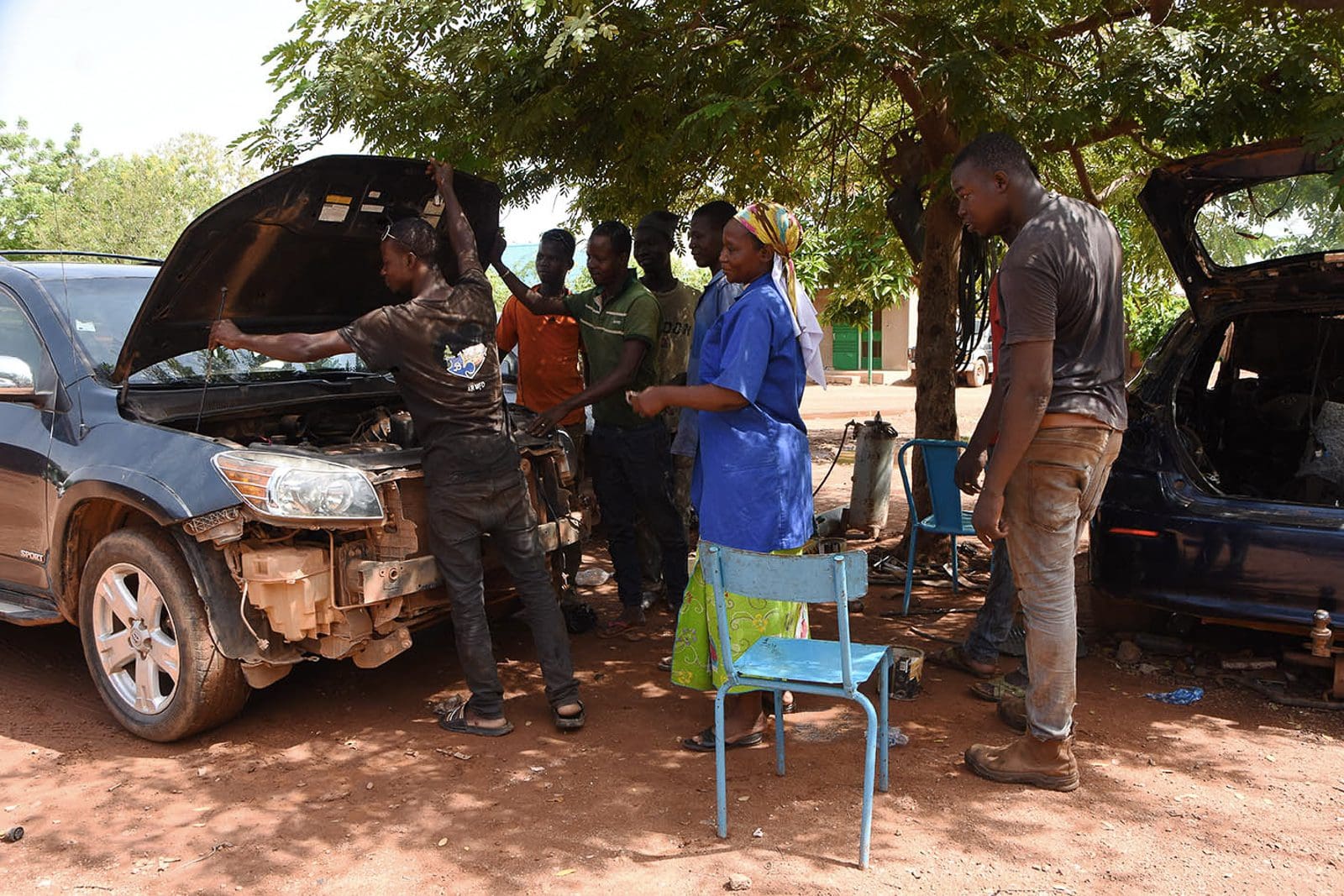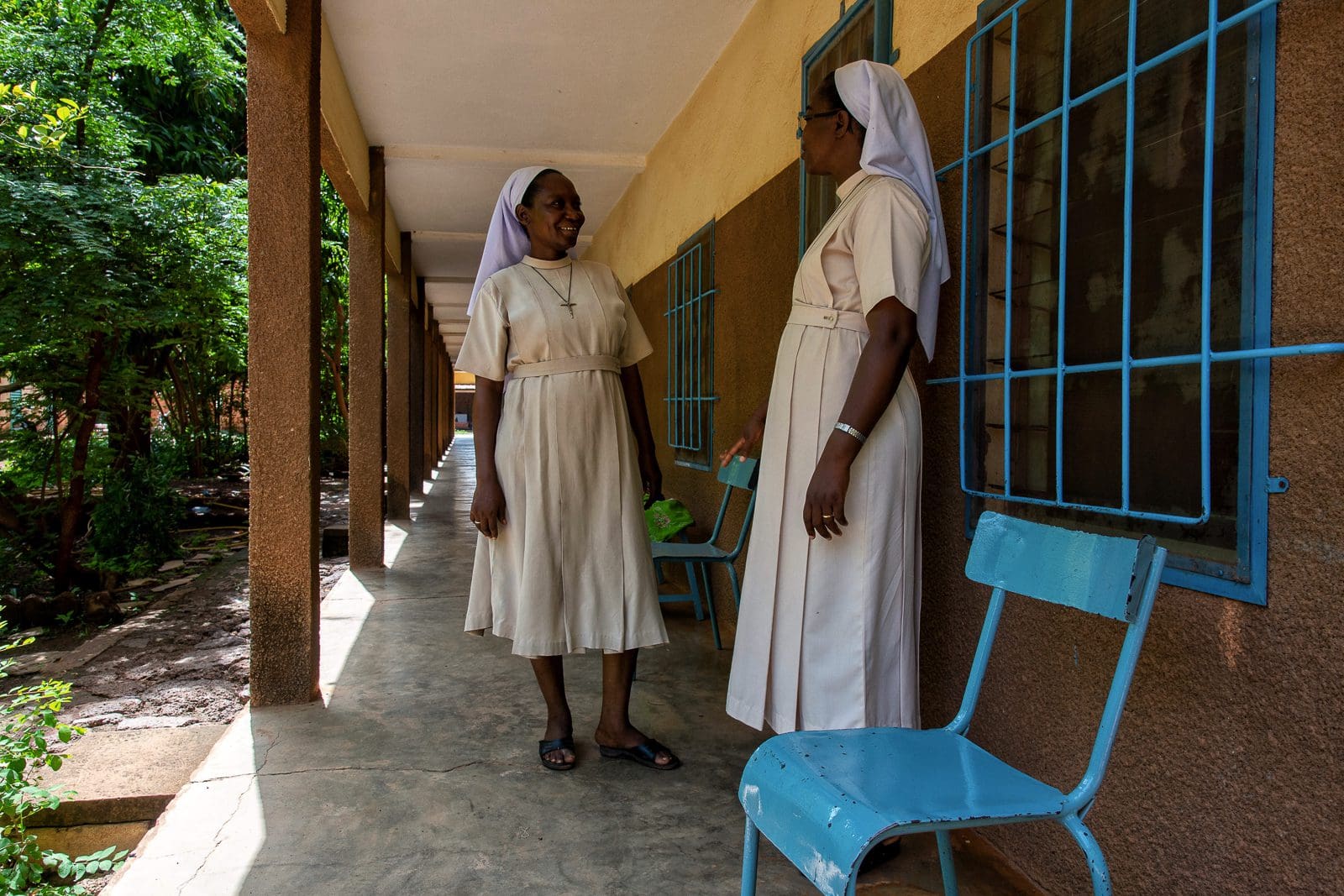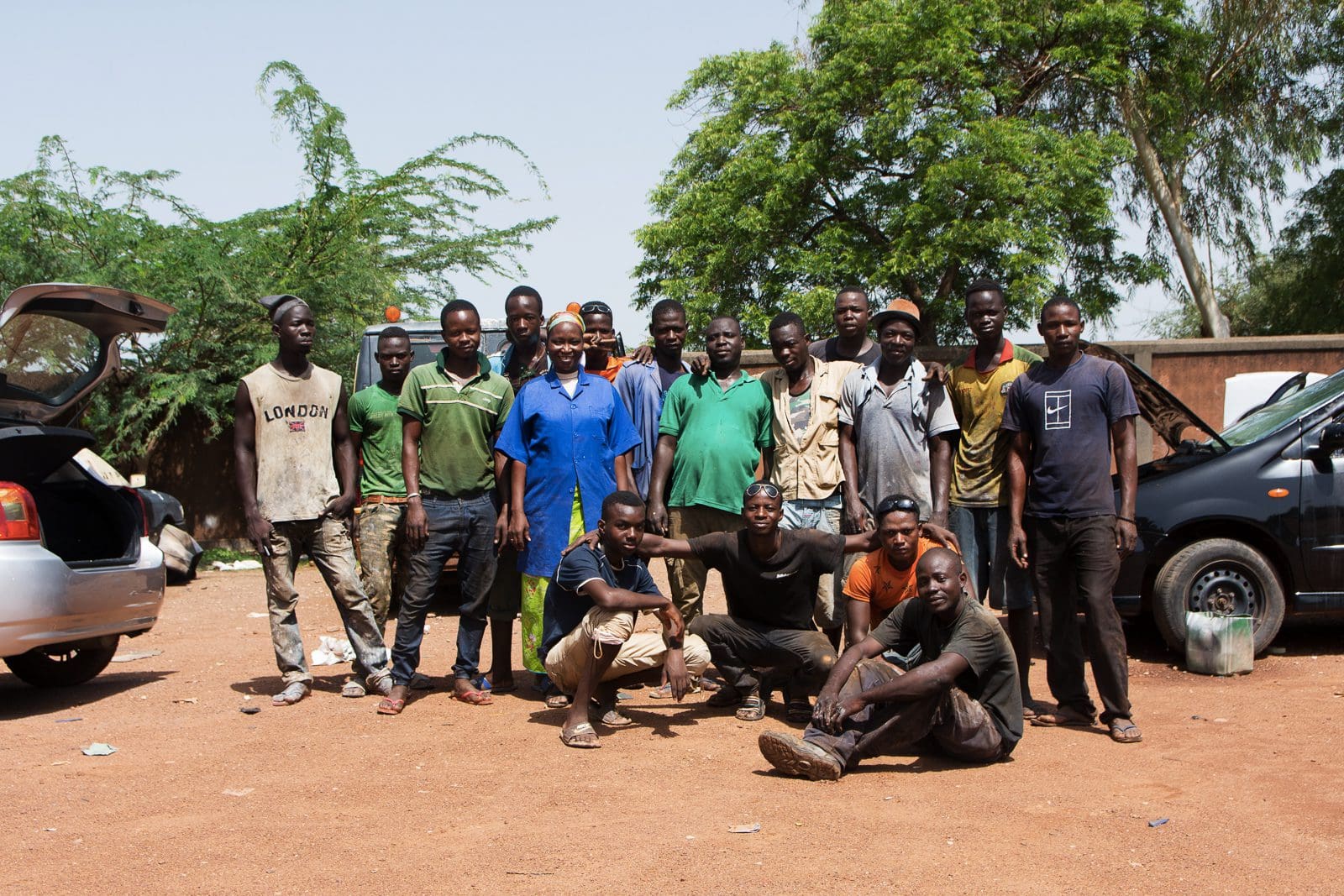Endless roads of red earth alternating with stretches of asphalt. Traffic of pedestrians, motor scooters, trucks, bicycles, taxis and cars. We are in Ouagadougou, Burkina Faso. A city that to our Western eyes seems excessively chaotic and polluted, but it has its logic for those who live here. And it is precisely around wheels and motors that one of the many forms of the underground economy of Ouagà, as its inhabitants call it, is based. In addition to spare parts dealers, one encounters dozens and dozens of tyre dealers and mechanics. One of many, but perhaps the most unique of all, is the Garage Saint Michel de SIC (short for Sisters of the Immaculate Conception), in Tampouy, on the city’s northern outskirts. It is because a woman, Alphonsine, runs it. She is a mechanic and a nun. A rarity in a country like Burkina Faso, considered the land of the last and always at the bottom of any pitiless statistics. But above all where gender equality is still only a mirage.

Sister Alphonsine: vocation and passion for engines
Sister Alphonsine is Burkinabè, born on 29 January 1977 in Pabrè, a small village in the province of Kadiogo. She grew up in a Catholic family with two sisters and three brothers. In her family difficulties were on the agenda. She was only nine years old when she felt the calling. Initially, she was drawn in by a school friend who told her about her parish activities and prayer times in her home. And it was with her that she started going to mass every Sunday. “I liked listening to it,” she tells me in French, “and going to mass made me feel good. I was at peace”. For Alphonsine, prayer had become one of the most important moments of the day.
Having obtained the CEPE, the certificate of primary studies, she took the test to enter the Aspirat St. M. Goretti in Tampouy, passing it successfully. This was a Catholic school run by the Sisters of the Immaculate Conception, with a five-year girls’ high school programme. “School education at Aspirat, along with discipline and ethics,” Sister Alphonsine recounts, “was done very well. All the main subjects were taught: French and mathematics, history and geography, law, and biology. But I preferred the more technical and practical subjects. During her time at the Aspirat, Alphonsine continued to nurture her faith, increasingly fascinated by the Gospel and finding religious life a true call to happiness. After graduating, she left for Guilongou for the vocational experience. She stayed there for a year and then returned to Pabré to undertake her novitiate. In 2001 she finally took perpetual vows.
That year, Alphonsine distinguished herself for her skill and inventiveness in handicrafts. One day, for example, she easily built a handcrafted motor-driven mill to grind grain. This allowed her to be noticed by Michel Pillot, a French priest and founder of several humanitarian associations in Burkina Faso, who recognised a great talent in her and urged her not to underestimate it. With her support, Sister Alphonsine got her driving licence and, once behind the wheel, her passion for motors had no limits.

Garage Saint Michel de SIC was born
Sister Alphonsine often thought of her country, Ouagadougou, and its countless problems. In particular, she was thinking of all the road accidents that happened. They were due to a combination of different factors: bad roads, lack of lighting, poor driving skills, and vehicles in poor conditions. In Burkina Faso, the market for second-hand cars thrives. But many of those cars are rickety old junk cars from Europe. For Sister Alphonsine, it could therefore be the ideal place for her profession as a nun and mechanic at the same time.
She studied seriously for two years, obtaining a diploma ‘en meccanique de automobile’ with top marks. During this time, again with the help of PAdre Michel Pillot, she did an apprenticeship in a body shop to learn the job. The only Burkinabe woman – and a nun – with such a title. A difficult proving field for Sister Alphonsine. In a country where women live suspended between desire and fear of change, between entrenched traditions and rights yet to be won. Yet Alphonsine, the nun mechanic, made it even in such a hostile country. Padre Michel Pillot was the first to place his trust in her, recognising in her considerations and above all in her abilities, a more than valid prerequisite for setting up a small business headed by herself.
So on 10 March 2009, Garage Saint Michel de SIC was opened. At first, there was only her and three other workers. A garage headed by a nun mechanic immediately aroused a lot of curiosity, so much that, as she says, ‘they came and still come to see if it is true’. But in addition to the curious, it also attracted many young people looking for work. So much so that the garage now employs twenty-two people: Alphonsine, a night watchman, seven mechanics, an electrician, four car bodyworkers and eight painters. Sister Alphonsine’s co-workers regularly receive a monthly salary of 35,000 CFA francs or about 50.00 euros per month. These are joined by several young apprentices who pay rent for the place to learn the job.

A vocation felt twice
Alphonsine’s job today is mainly to administer, coordinate and organise the work. She usually diagnoses the problems of the cars and decides with her staff what to do. But she is also able to ‘get her hands dirty’. She never backs down. Between one invoice and another, she is always alert and attentive to support her staff. Leaving the office, she usually ties a handkerchief around her veil, rolls up her sleeves and, between a spanner and an air compressor, teaches her apprentices everything she knows about engines.
“We all are called to do something,” she concludes, “you just have to know how to listen. Vocation is the union of love and passion, I have seen and felt it for Christ and in Christ. To these feelings are added experience and talent, which He whispers to you and teaches you to see. It is as if I have felt the vocation twice”.


